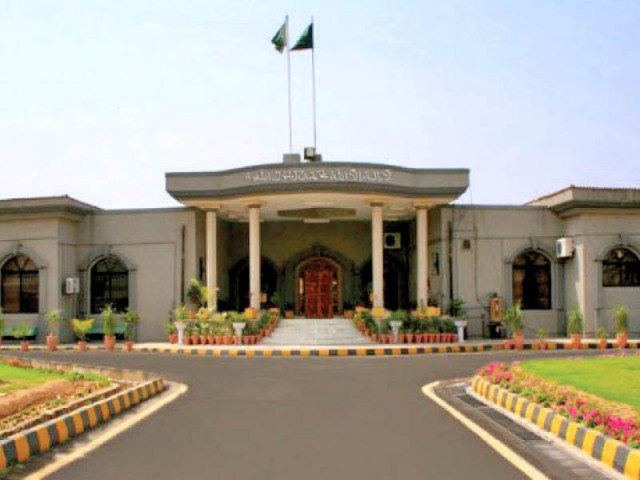Last chance: Civil judges get three months to prove themselves
Justice Kayani expects failed magistrates to clear remaining exams till end of probation period

PHOTO: EXPRESS
As many as 18 civil judges-cum-judicial magistrates of Islamabad, who had been appointed in the Islamabad Judicial Service on September 22, 2012, had challenged two notifications of the IHC which notified results of the first round of departmental examinations mandatory for their confirmation and another notification directing them to appear in a second test.
The judges had failed in Criminal Law, Civil Law-I, Civil Law-II, Revenue Law, Accounts and Shariah Law.
They contested the composition of the examination committee and sought exemption from the exams.
Justice Mohsin Akhtar Kayani, however, dismissed the petition after finding it devoid of merits and not maintainable on June 6. While doing so, however, Justice Kayani concluded that judges “shall continue to work” and can be given a one-time extension of their probation period.
The 24-and-a-half page-long detailed judgment, released recently, indicates that the judges’ claims were not founded on legal principles.
However, towards the end of the judgement, Justice Kayani provides the judges with an opportunity which, apparently, departs from the tone and tenor adopted in most of the order.
While restraining himself from committing to strict action against the judges, he directed the IHC registrar to place his judgment before the IHC chief justice and the departmental examination committee of the court.
Justice Kayani said that the registrar would seek further directions from the two on issuing a notification for departmental examination of the judges. He, however, directed that the departmental examinations would be held within three months along with a schedule for the remaining chances.
In his judgement, Justice Kayani noted that the examination committee was expected to initiate the process of exams for the remaining batches of civil judges-cum-judicial magistrates within the same schedule.
Further, he expected that the committee would review the syllabus of departmental examination and exclude subjects which are not applicable in Islamabad and relate to the Punjab such as the Punjab Tenancy Act 1887, Punjab Alienation of Land Act 1900, Colonisation of Government Land (Punjab) Act 1912, and the Punjab Pre-emption Act 1991.
Instead, he recommended adding subjects which were applicable in the capital such as the Islamabad Rent Restriction Ordinance 2001.
Further, Justice Kayani hoped that the IHC chief justice would issue a notification extending the probation period of the civil judges as a one-time special consideration in lieu of their service tenures and because their probation period had expired during the time their petition was heard and adjudicated on and owing to a stay previously granted by the IHC.
Justice Kayani concluded that the judges had decided thousands of cases in the four years they had served in the department and thus they should be treated with fairness and according to the “principle of natural justice”.
While allowing the civil judges to continue their work under the terms of their appointment, he said that all the [failed] judges had to pass their remaining departmental exams within their extended probation period.
Published in The Express Tribune, June 30th, 2017.



1724319076-0/Untitled-design-(5)1724319076-0-208x130.webp)















COMMENTS
Comments are moderated and generally will be posted if they are on-topic and not abusive.
For more information, please see our Comments FAQ